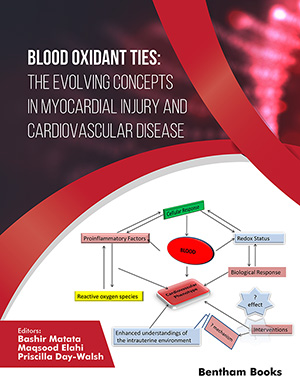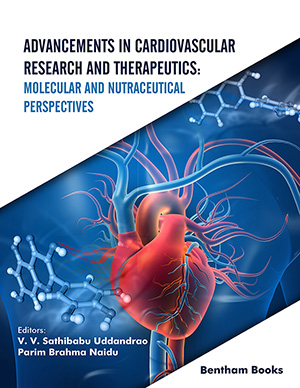Abstract
Sleep-related breathing disorders, including obstructive sleep apnea (OSA) and central sleep apnea (CSA), have a major impact on cardiovascular function. It has shown an association with hypertension, coronary artery disease, cardiac arrhythmias, sudden cardiac death, and congestive heart failure (CHF). This review focuses on highlighting the relationship between sleep apnea and CHF. We discuss the underlying pathophysiology, which involves the mechanical, neurohormonal, and inflammatory mechanisms; in addition, the similarities and differentiating clinical features of OSA in patients with CHF and without CHF. We have also discussed several treatment strategies, including weight loss, continuous positive airway pressure (CPAP), supplemental oxygen therapy, theophylline, acetazolamide, mandibular advancement device, and hypoglossal nerve stimulation (HGNS). We conclude that since there are several overlapping clinical features in patients with OSA with Heart Failure (HF) and without HF, early detection and treatment are crucial to decrease the risk of HF, coronary artery disease, and stroke.
Keywords: Obstructive sleep apnea/pathophysiology, apnea-hypopnea index, congestive heart failure, continuous airway positive pressure, mandibular advancement device, hypoglossal nerve stimulation.
[http://dx.doi.org/10.1183/16000617.0077-2015] [PMID: 26929416]
[http://dx.doi.org/10.1159/000327660] [PMID: 22005188]
[http://dx.doi.org/10.1016/S1389-9457(03)00168-0] [PMID: 14607346]
[http://dx.doi.org/10.1093/sleep/zsab030] [PMID: 33693939]
[http://dx.doi.org/10.14503/THIJ-15-5678] [PMID: 30072851]
[http://dx.doi.org/10.1016/S1474-5151(03)00002-1] [PMID: 14622644]
[http://dx.doi.org/10.1161/01.CIR.0000061757.12581.15] [PMID: 12668504]
[http://dx.doi.org/10.1183/09031936.00037106] [PMID: 17360729]
[http://dx.doi.org/10.5664/jcsm.27191] [PMID: 18595441]
[http://dx.doi.org/10.1007/s11897-013-0167-3] [PMID: 24097114]
[http://dx.doi.org/10.1046/j.1365-2869.2001.00263.x] [PMID: 11903855]
[http://dx.doi.org/10.1056/NEJM199302043280502] [PMID: 8419815]
[http://dx.doi.org/10.4103/lungindia.lungindia_64_21] [PMID: 34975051]
[http://dx.doi.org/10.1152/japplphysiol.00772.2005] [PMID: 16288102]
[http://dx.doi.org/10.1161/CIRCULATIONAHA.109.902452] [PMID: 20351237]
[http://dx.doi.org/10.1164/rccm.200607-927OC] [PMID: 16998093]
[http://dx.doi.org/10.1164/rccm.200807-1076OC] [PMID: 19011149]
[http://dx.doi.org/10.1136/thx.2006.071183] [PMID: 17442706]
[http://dx.doi.org/10.1016/j.resp.2008.03.004] [PMID: 18439881]
[http://dx.doi.org/10.1161/01.CIR.61.3.626] [PMID: 7353253]
[http://dx.doi.org/10.1016/j.amjcard.2008.07.050] [PMID: 19026314]
[http://dx.doi.org/10.1378/chest.119.6.1827] [PMID: 11399711]
[http://dx.doi.org/10.1152/jappl.1989.67.5.2095] [PMID: 2513315]
[http://dx.doi.org/10.1016/j.jacc.2010.08.627] [PMID: 21211682]
[http://dx.doi.org/10.1164/ajrccm.162.6.2002126] [PMID: 11112132]
[http://dx.doi.org/10.1097/00004872-199605000-00006] [PMID: 8762200]
[http://dx.doi.org/10.1161/01.CIR.0000018948.95175.03] [PMID: 12034649]
[http://dx.doi.org/10.1183/09031936.00111208] [PMID: 19407053]
[http://dx.doi.org/10.1161/CIRCHEARTFAILURE.109.931451] [PMID: 21075869]
[http://dx.doi.org/10.1164/rccm.200703-500OC] [PMID: 17556718]
[http://dx.doi.org/10.1186/s13643-021-01759-6] [PMID: 34330323]
[http://dx.doi.org/10.1016/j.sleep.2020.10.024] [PMID: 33310689]
[PMID: 16563194]
[http://dx.doi.org/10.1001/archinte.166.16.1716] [PMID: 16983049]
[http://dx.doi.org/10.1378/chest.11-2963] [PMID: 23303285]
[PMID: 29517065]
[http://dx.doi.org/10.1016/j.jsmc.2018.10.002] [PMID: 30709529]
[http://dx.doi.org/10.1378/chest.09-0360] [PMID: 20202954]
[http://dx.doi.org/10.17305/bjbms.2016.1579] [PMID: 27754829]
[http://dx.doi.org/10.1164/rccm.201003-0406OC] [PMID: 20656940]
[http://dx.doi.org/10.1016/j.sleep.2007.06.018] [PMID: 17904420]
[http://dx.doi.org/10.1164/rccm.200511-1745PP] [PMID: 16528015]
[http://dx.doi.org/10.1016/j.jacc.2004.12.080] [PMID: 15963401]
[http://dx.doi.org/10.1056/NEJM200105313442201] [PMID: 11386263]
[http://dx.doi.org/10.1164/rccm.200203-208OC] [PMID: 12204875]
[PMID: 31584412]
[http://dx.doi.org/10.5665/sleep.1380] [PMID: 22043118]
[http://dx.doi.org/10.1056/NEJM199608223350805] [PMID: 8678934]
[http://dx.doi.org/10.1164/rccm.200507-1035OC] [PMID: 16239622]
[http://dx.doi.org/10.1016/j.chest.2020.06.078] [PMID: 32768459]





















